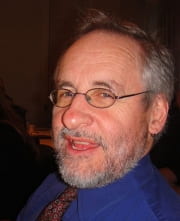
Goal
Publications
BOOKS
This book looks ahead and asks where the increased reliance on profits from gambling is leading in the long term. It argues that the rapid commercial expansion of gambling through modern Western democracies can be likened to the commercial expansion of other primary exploitative industries such as native forest logging in countries like Indonesia and Brazil. Both expansions are propelled through the interlocked interests of governments, international companies, and local entrepreneurs. While widespread native logging results in multilayered impacts on natural ecology, intensified gambling consumption results in complex impacts on the social and political ecologies. Read more
MORAL JEOPARDY: RISKS OF ACCEPTING MONEY FROM THE ALCOHOL, TOBACCO, AND GAMBLING INDUSTRIES (Cambridge UK: Cambridge University Press, 2016, 282 pages)
Tobacco, alcohol and gambling corporations have been highly effective in stalling, diverting and blocking public health measures. This book provides an original and engaging exposé of the ethical issues faced by people and organizations when they accept industry money in ways that facilitate corporate influence with the public and with policy makers. It starts with a detailed examination of the risks of accepting such profits and what might be done to reduce them, then moves on to introduce the concept of a continuum of ‘moral jeopardy’ which shifts the emphasis from accept/not accept binaries to a focus on the extent to which people are willing to accept funding. This shift encourages people to think and speak more about the risks and to develop clearer positions for themselves. The content will be helpful to those working in government agencies, addiction services, community organizations or anyone interested in reducing the harms of addictive consumption. Read more
PUBLIC HEALTH
- [ARTICLE] Van Schalkwyk, M, Petticrew, M, Cassidy R, Adams, P, McKee M, Reynolds, J, Orford, J. A public health approach to gambling regulation: countering powerful influences. The Lancet: Public Health. 6(8) e614-9. Read more
- [CHAPTER] Adams P.J. Ways industry pursues influence with policymakers. In J Nikkinen, V Marionneau, M Egerer (eds.). The Global Gambling Industry: Structures, Tactics and Networks of Impact. Wiesbaden: Springer Gabler (pp. 199-217). Read more
- [CHAPTER] Adams, P.J. Gambling and democracy. Chapter 1 in H. Bowden-Jones, C.Dickson, C. Dunand and O.Simon (eds.) Problem Gambling: Harm-reduction as a Public Health Approach. London: Routledge. Read more
- [ARTICLE] Adams, P.J., Wiles, J. (2016) Gambling machine annexes as enabling spaces for addictive engagement. Health & Place, 43, (1), 1-7. Read More.
- [ARTICLE] Adams, P. J., Rossen F. (2012). A tale of missed opportunities: Pursuit of a public health approach to gambling in New Zealand. Addiction, 107, (6), 1051-1056. Read More
- [BOOK] Adams, P. J. Gambling, Freedom and Democracy. New York: Routledge New York [Sole-authored, original book; Volume 53 of Routledge Series on Studies in Social and Political Thought, 226 pages]. Read more
- [ARTICLE] Adams, P.J., Raeburn, J. & De Silva, K. (2009) A question of balance: Prioritizing public health responses to harm from gambling. Addiction, 104, 688-691. [Accompanied with 4 invited commentaries]. Read more
- [COMMENTARY] Adams, P.J., Raeburn, J. & De Silva, K. (2009). Gambling beneficiaries having their cake and eating it: the attractions of avoiding responsible gambling regulation. Addiction. 104, 697-698 [Response to commentaries]. Read more
- [ARTICLE] Adams, P. J. (2009). Redefining the gambling problem: The production and consumption of gambling profits. Gambling Research, 21(1), 51-54. Read more
INDUSTRY ETHICS
- [ARTICLE] Livingstone, C., Adams, P.J., Cassidy, R., Markham, F., Reith, G., Rintoul, A., Dow Schull, N., Woolley, R. & Young, M. On gambling research, social science and the consequences of commercial gambling. International Gambling Studies 18:1, 56-68. Read more
- [ARTICLE] Adams, P.J. (2013) Addiction industry studies: Understanding how proconsumption influences block effective interventions. American Journal of Public Health, Vol. 103, No. 4, pp. e35-e38. Read more
- [CHAPTER] Adams, P.J. (2012) Should Addiction Researchers Accept Funding Derived from the Profits of Addictive Consumptions? In A. Chapman (Ed.) Genetic Research on Addiction: Ethics, the Law and Public Health, Cambridge: Cambridge University, 122-138. Read more
- [ARTICLE] Adams, P.J. (2011) Ways gambling researchers receive funding from gambling industry sources (invited editorial). International Gambling Studies, 11, (2), 145-152. Read more
- [ARTICLE] Livingstone, C., Adams, P.J. (2011) Harm promotion: observations on the symbiosis between government and private industries in Australasia for the development of highly accessible gambling markets,Addiction, 106, (1), 3-8. [Accompanied by 4 invited commentaries]. Read more
- [ARTICLE] Adams, P.J., Buetow, S., Rossen, F. (2010) Vested interests in addiction research and policy: Poisonous partnerships: health sector buy-in to arrangements with government and addictive consumption industries,Addiction, 105, (4), 585-590. [Accompanied with one invited comment]. Read more
- [ARTICLE] Adams, P. J. (2007). Assessing whether to receive funding support from tobacco, alcohol, gambling and other dangerous consumption industries. Addiction, 102(7), 1027–1033. [Accompanied by 5 invited commentaries and my response]. Read more
- [COMMENTARY] Adams, P. J. (2007). Trusting researchers to police themselves? Addiction, 102(7), 1039–1040. [Reply to 5 commentaries on paper in same issue]. Read more
- [ARTICLE] Adams, P. J. & Rossen, F. (2006). Reducing the moral jeopardy associated with receiving funds from the proceeds of gambling. Journal of Gambling Issues, Issue 17, August 2006. Read more
- [REPORT] Adams P. & Rossen F. (2005) The Ethics of Receiving Funds from the Proceeds of Gambling. Auckland: Centre for Gambling Studies, University of Auckland, 2005 [This report tackled key ethical issues in gambling funding and has been circulated through gambling field and within government agencies 46 pages]
- [ARTICLE] Adams, P. (2004) Minimising the impact of gambling in the subtle degradation of democratic systems.Journal of Gambling Issues. 11, 1 – 18 [6000 words] Read more
- [ARTICLE] Adams, P., Raeburn, J., Brown, R., Lane, L., Tse, S., Manaia, W. & Gerdelan, R. (2003) Editorial: Should Gambling Researchers Receive Funding Directly from Gambling Industries? WAGER: Harvard Weekly Addiction Gambling Education Report February 2003.
GENERAL ISSUES
- [ARTICLE] Zhang W. Fouche C. Adams P. (2023) A process model for responding to casino gambling harm experienced by Chinese migrants. International Gambling Studies, Early view, 1-17.
-
[ARTICLE] Zhang W. Fouche C. Adams P. (2022) Chinese migrants’ experiences of responding to gambling harm in Aotearoa New Zealand. Aotearoa New Zealand Social Work 34 (2), 16-29. Read more
- [ARTICLE] Adams, P. J. & Hodges, I. (2005). Understanding dangerous consumptions: Moving forward with a national strategy for research on tobacco, alcohol, other drugs and gambling. Journal of Social Policy in New Zealand. 26(November), 17-42. Read more
- [ARTICLE] Adams, P. J. (2005). Identity talk on dangerous consumptions down-under. Guest editorial to special issue in Addiction Research and Theory. 13(6), 515-521 [4000 words] Read more
- [REPORT] Campbell, L, Brown, R. & Adams, P. (2005) Identifying and Improving Information on Gambling For Use by Territorial Local Authorities. Auckland UniServices Ltd, University of Auckland (70pp) [Outlines how local governments could respond to the requirement under the Gambling Act to monitor impacts of gambling on communities]. Read more(pdf, 727 kb)
- [REPORT] Adams, P., Morrison, L., McMillan, L., Orme, C., Sloan, M., Tse, S. & Campbell, C. (2004) Problem Gambling Workforce Development 2003: The First Step in Developing Counsellor Practitioner Competencies. (60pp) Auckland: Problem Gambling Foundation.
- [REPORT] Adams, P. J. & Hodges, I. (2004). Strategy Advisory Document: Towards a National Strategy for the Development of Research on Tobacco, Alcohol, Other Drugs and Gambling. (59pp). Health Research Council of New Zealand, Auckland.
- [ARTICLE] Adams, P. J. (2004) A history of gambling in New Zealand. Guest editorial to special issue. Journal of Gambling Issues. 10: 1- 15 [Brief overview of the expansion of gambling in New Zealand – 3000 words] Read more
- [REPORT] Adams, P., Rossen, F., Perese, L., Townsend, S., Brown, R., Brown, P. & Garland, J. (2004) Gambling Impact Assessment for Seven Auckland Territorial Authorities. Part One: Introduction and Overview (114pp); Centre for Gambling Studies, University of Auckland. Read more (pdf, 727 kb)
- [REPORT] Adams, P., Rossen, F., Perese, L., Townsend, S., Brown, R., Brown, P. & Garland, J. (2004) Gambling Impact Assessment for Seven Auckland Territorial Authorities: Part Two: Seven District Reports (210pp) Centre for Gambling Studies, University of Auckland [seven separate reports for each territorial authority]
COLLECTIONS
- [SPECIAL ISSUE] Adams, P. J., Fitzgerald, J. & Livingstone, C. (2005). Special issue on “Identity talk on dangerous consumptions down-under,” Addiction Research and Theory. Read more
- [SPECIAL ISSUE] Adams, P. J. (2004) Special conference issue editing “Gambling through a Public Health Lens: Gambling in New Zealand” for Journal of Gambling Issues. 10: 1 – 95. Read more
- [CONFERENCE PROCEEDINGS] Adams, P.J. & Bayly, B. (eds.) (1999). Problem Gambling and Mental Health in New Zealand: Selected Proceedings of the National Conference on Gambling 1999 Auckland: Compulsive Gambling Society of New Zealand, 1999.
Media
- [VIDEO] Professor says gaming rooms are like urinals: ‘You’ve got business to do’ (TVNZ, Dec 9 2016). Looks at the design of pokie rooms. See more
- Remember who really pays in SkyCity deal (NZ Herald, March 5, 2013). Points out how profits from problem gamblers enables casino executives to invest in activities which court political and public favour. Read more
- [ARTICLE] Who exactly is it who wants more pokies? (The Dominion Post, April 27, 2012). Discusses how any loosening of pokie legislation can unleash a cycle of various gambling interests competing and pressuring for more exceptions. Read more
- [ARTICLE] Casinos create worse addictions that Kronic (NZ Herald, June 22, 2011). Argues that the Government has its priorities wrong in that it is more prepared to respond to harms from party pills than those associated with gambling. Read more
Involvements
COMMUNITY
- Chair for 5 years of the Board of Directors of the Problem Gambling Foundation of New Zealand (PGF) – previously the Compulsive Gambling Society of New Zealand. During this term the PGF grew to providing treatment interventions for problem gambling as well as health promotion, education and advocacy services for reducing harm from gambling. Problem Gambling Foundation of New Zealand
- Clinical and education consultant to the Compulsive Gambling Society of New Zealand in its formation as the major provider of advice and services for people with gambling problems (1995 to 2003).
- Member for five years of a national Committee on Problem Gambling Management which later became the Problem Gambling Committee, a statutory committee of government for purchasing services for problem gambling in New Zealand (1997 – 2003).
RESEARCH
- Director and co-director for ten years of the Centre for Gambling Studies. Opened by the Deputy Prime Minister, Hon Jim Anderton, in 2001, the team of researchers conducted a wide variety of research projects. In 2012 it was merged into the Centre for Addiction Research (CFAR). Check the CFAR website for a listing of past projects.
- Assistant Editor with Addiction, the lead journal in the addiction field and actively engaging with research on gambling.
- Co-convener of annual Dangerous Consumptions (DC) Conferences held for two days in November in either Australia or New Zealand and focusing on social theory applications to consumptions such as gambling, alcohol, illicit drugs, pharmaceuticals, body enhancers etc. Run every year since 2002.
- Currently pursuing research interests into the moral jeopardy associated with increased reliance by public good institutions (charities, sporting clubs, universities, schools etc) on proceeds from the profits from gambling.
TEACHING
- Supervisor for several PhD projects on addiction issues including gambling (see PhD Webpage)
- Teaching two postgraduate courses with content relating to gambling:
- POPLHLTH 737 Alcohol, Tobacco and Other Drug Studies. (Semester 1) Provides an introduction and overview to studies on alcohol and other drugs. Incorporates theory and research developed within public health, mental health, and specialised treatment frameworks.
- POPLHLTH 774 Addictive Consumptions and Public Health. (Semester 2) Focuses on the extensive health impacts of addictive consumptions, particularly in relation to the legalised consumptions of tobacco, alcohol and gambling. Outlines applications of public health principles to reducing harm from these consumptions.
OTHER
- To be developed



